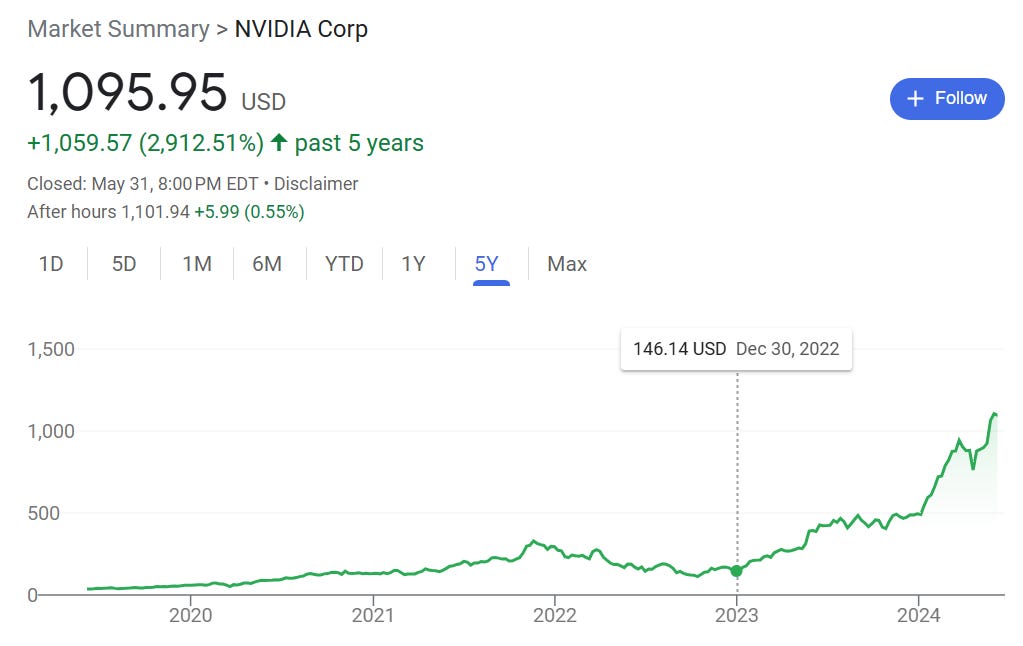5 Misconceptions about Hedge Funds
Let’s explore the five most common misconceptions surrounding hedge funds.
“Hedge funds don’t even beat indices”
Many often criticize hedge funds for not beating the S&P 500 in a given year. This misunderstanding is widespread, even among the press.
However, hedge funds are absolute return vehicles, unlike mutual funds. Hedge funds’ objective is to generate returns for clients regardless of market conditions. Unlike mutual funds that are directional by definition (long ONLY), hedge funds can go long and sell short. An extreme example of this concept is market-neutral strategies (eg. Citadel, Millennium, Point72).
In a well-designed market-neutral portfolio, if the market (proxied by an index) declines by 10%, the value of long positions would decrease by 10%, but the value of short positions should increase by 10%, resulting in no net loss. This approach adds significant value to clients seeking protection from market movements.
That’s why when hedge funds (assuming 2/20) made 10% and the index was up 2% in the year, their performance fee was 20% on the 10%. Not 20% on the 8% (10% return minus 2% index return)
I am not defending hedge funds’ underperformance. I am just saying clients invest in a hedge fund for something that an S&P 500 index product cannot provide.
If you are managing billions for a pension fund or endowment, you have annual payout obligations (for scholarships, etc.) and need to keep up with inflation. So you are looking for a product that can grow assets without being excessively exposed to the market because just a few down years can significantly hurt long-term outcomes. That’s why clients allocate to hedge funds that promise returns with lower market risk.
Of course, in reality, so many hedge funds fail to fulfill that promise (but thanks for paying the hedge funders fees in the up years so they can buy mansions, yachts, and send our kids to private school. And when they blow up, your contributions help they open a family office) But such promise is why hedge funds collect fees on all the profits they generate because theoretically that profit should be less impacted by market turbulence.
The key takeaway is that comparing hedge fund returns to index returns is misguided.
“Buy-side has great work-life balance”
Investing is a skill-based job. You are judged on your output. If you consistently produce good results, you will likely be rewarded. If not, you will be let go. Funds are ultimately paying you to produce decisions, not paying you to do work (though that’s what you do mostly at the start.)
This is unlike jobs on the sell side, which has tons of busy work needing tangible hours.
Consider Usain Bolt. He doesn't spend just 10 seconds every four years to win an Olympic gold medal. Instead, he invests countless hours of training to perform those 10 seconds to claim the title of the world’s fastest man.
The same concept applies to the buy side. To perform well, unless you're exceptionally gifted, you need to invest many hours to become proficient at your job, let alone excel. For the same reason, funds make it hard to enter the industry because proficiency is expected before you even start.
Once you have the job, continuous effort is required to gain pattern recognition and adapt to ever-changing market conditions. So thinking of public equity investing as a 9-to-5 job without any extra time commitment is naïve.
If you love investing, it might not feel like work. However, living and breathing businesses and stocks are real work.
“Our holding period is 3-5 years”
Many funds claim to invest over a 3-5 year time horizon. I used to be skeptical of such claims, much like I was of funds touting a "private equity approach to the public market" while simultaneously obsessing over every near-term data point.
For most businesses, particularly growth businesses, the majority of their enterprise value lies in the terminal value. This is what many hedge funds are betting on. Some funds do genuinely aim for a 3-5 year horizon, but they often sell earlier, because they are betting on the market's PERCEPTION of the business trajectory rather than the trajectory itself.
The market is a pendulum that tends to overswing in both directions. All it takes is one catalyst for earning growth acceleration (such as an event like COVID) and the market will over-extrapolate that one data point into perpetuity, driving the stock price into uncharted territory, warranting the fund to take profit and reallocate the capital.
“We don’t care about macro/quarters”
Long-term investors assert that volatility is not a risk and that only permanent capital impairment is. However, volatility IS a risk for hedge funds.
Hedge funds charge higher fees than the long-onlys, so they need to add value on a shorter-term basis. It’s a tougher game, but that’s what they promised their clients. As a result, hedge funds need to focus on factors that are less relevant to long-term investors.
Hedge fund portfolio managers pay attention to macro events and make more decisions more frequently than a long-only portfolio manager would. They engage in significant mental gymnastics to ensure no positions "blow up” going into an event such as quarterly earnings.
The most extreme version is multi-manager hedge funds, whose business model hinges on understanding market sentiment ahead of events like earnings releases. They position their portfolios based on bets about whether stocks will rise or fall, depending on how the market reacts to whether companies beat or miss quarterly expectations.
If a hedge fund tells you they don’t pay attention to quarterly positioning and macro, they are lying.
“We invest under (this style)”
In the last article, I discussed how many funds lose focus on their promised mandates and style drift into completely uncharted territories. For instance, TMT funds pivot entirely to investing in cyclicals and vice versa. I've seen mutual funds declare in their annual letters that they are shifting from high-growth, non-profitable stocks to compounders after the rates have gone up.
That’s why you should never fully trust a fund’s public filings or letters. Hedge funds are often worse offenders than mutual funds. Even well-known funds can be chaotic internally, especially if run by multiple PMs who can make buy/sell decisions.
This is also why I continue to emphasize the importance of networking to gather primary sources of information about how your potential future employer operates daily. There’s no better way to know than by asking ex-employees or other buy-siders familiar with the fund. Chances are, if the other buy-siders work in the same style or geographic region, they will have insights into how your future employer actually does things.
Next time, when you hear an investor on a podcast or read about them, take it with a grain of salt. It's a lot of marketing, and you need to do your own research to uncover the true substance.
Let me know your thoughts in the comments. Thanks for reading and I will talk to you next time.
If you want to advertise in my newsletter, contact me 👇
Resources for your public equity job search:
Research process and financial modeling (10% off using my code in link)
Check out my other published articles and resources:
📇 Connect with me: Instagram | Twitter | YouTube | LinkedIn
If you enjoyed this article, please subscribe and share it with your friends/colleagues. Sharing is what helps us grow! Thank you.









Man, you are a great source for knowing about hedge funds, One small request, Can you write an article on Andy Beal (Beal Bank)